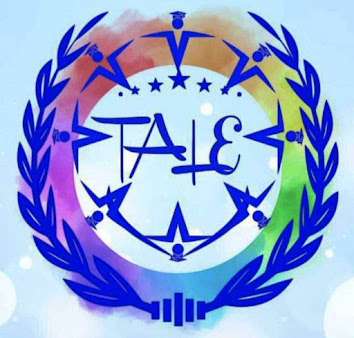Goblin Market : Summary:
Two sisters, Laura and Lizzie,
hear the sounds of the goblin fruit market from their house. At first they try
to ignore the enticing calls of the goblin men, but eventually Laura decides to
go out and see what's happening. Lizzie warns her not to, but Laura is too
curious. The goblin men offer her their fruit, and Laura thinks it looks tasty.
She doesn't have any money, but the goblins offer to take a piece of her golden
hair instead. So Laura gives up some of her hair, gorges herself on goblin
fruit, and heads on home to her sister. But after eating all that goblin fruit,
Laura starts to waste away. Lizzie gets worried and decides to go down to the
market to see what's what. The goblin men try to tempt her the way they tempted
Laura, but Lizzie stands firm. The goblin men turn violent and try to stuff
fruit in Lizzie's mouth, but she squeezes her mouth shut, so they just end up
getting juice all over her. Lizzie runs back to their house all covered in
goblin fruit juice. Laura kisses the juice off her sister's cheeks and is
miraculously, but painfully, healed. Years later, Laura and Lizzie are both
wives and mothers, and they describe their experience in the goblin market to
their own children as a cautionary tale about the importance of sisterly love.
Analysis :
This narrative poem
has an irregular rhyme scheme and loose iambic tetrameters, which quickens the
pace. The loose meter allows for the narrators' spontaneity, and the rapid pace
lends a tone of urgency. Lizzie and Laura, the narrators, deliver the poem as
lessons to their children.There are two popular interpretations of “Goblin
Market”: one reading is religious, and the other focuses on gender and
sexuality.
In the Christian interpretation,
Laura represents Eve, the goblin men are the equivalent of Satan, their fruit
is the temptation to sin, and Lizzie is the Christ figure. Laura sins by going
against the interdiction that she must not eat the goblins’ fruit, which is
homage to Adam and Eve eating the forbidden fruit in the Book of Genesis. The
long list of the goblins' fruit represents the wide variety of temptations that
humans face during their lifetimes. Like Adam and Eve, Laura discovers that the
fruit does not bring fulfilment, but rather, death and destruction.
Meanwhile, Lizzie suffers the
consequences of Laura’s sin in order to rescue her sister from the punishment
of death, just like Christ. The red fruit juice that Lizzie tries to get Laura
to drink is like the blood of Christ in the Eucharist. Rossetti describes
Lizzie as a pure “lily in a flood," and that is why she is the only person
who is able to save Laura’s life. The sacrifice Lizzie makes for her sister
comes out of pure love and true friendship.
The second interpretation of
"Goblin Market" is based on symbols of repressed sexual desire and
sexual violence. Lizzie and Laura are both innocent and virginal at the
beginning of the poem, but Laura’s curiosity proves to be stronger than her
sister’s warning. Rossetti creates an uncomfortable struggle between the
consequences of pursuing lust and the need to explore natural human desires.
Amidst charged language like “sucked” and “heaved,” Laura loses her youth and
bloom (her virginity, essentially) as a result of taking the goblin men's
tempting fruit. In Victorian society, a woman’s deflowering marks her
transition into adulthood as a wife and mother. However, because Laura is not
married, the encounter strips her of her "maiden" status prematurely.
Laura did not heed her sister's warning, and now, just like Jeanie, she will
suffer.
Lizzie's trajectory in this
interpretation, however, is not quite as straightforward. Rossetti uses the
language of sexual violence when the goblin men attack her with fruit, but
Lizzie refuses to drink the juice. Meanwhile, she manages to hold onto her
virtue in the form of the silver penny, which has a double meaning -
"silver penny" was an Elizabethan term for the female genitalia.
Lizzie makes a sacrifice so that Laura can heal and recover. However, the
difficulty of this interpretation is that lost maidenhood cannot be recovered.
Instead, Laura’s redemption could be referring to her reintroduction into
normal social relationships, because at the end of the poem, she is married
with children.
The motto, “there is no friend
like a sister,” coincides with the feminist theme. Sisterhood and female
community were important to Rossetti, who worked with prostitutes at the St.
Mary Magdalene Home for Fallen Women. Perhaps she hoped that through this poem,
even fallen women could seek a path to redemption, leaving their past
indiscretions behind. However, there is a darker side to the feminist
interpretation. Much of the language in “Goblin Market” refers to buying and
selling. In Victorian England, women were expected to follow a certain standard
of conduct. Failure to meet these standards led to the depreciation of a
woman’s worth when she came to the marriage "market." Unlike Laura,
Lizzie heeds the warning and safeguards her money in her purse, thereby
protecting her maidenly virtue.












No comments:
Post a Comment